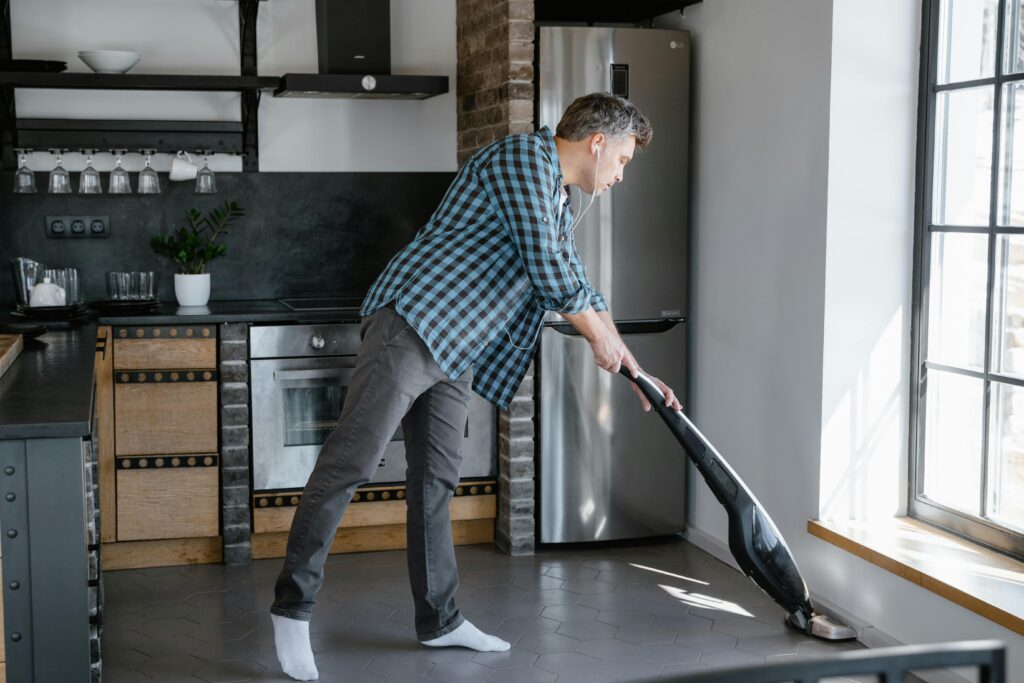Introduction
- Cleaning Kitchen Appliances: Best Practices for Longevity
- Understanding the Importance of Regular Maintenance
- Cleaning Your Refrigerator
- Detailed Step-by-Step Guide for Cleaning the Interior and Exterior of Appliances
- Maintaining and Cleaning Your Oven
- Care Tips for Your Microwave
- Taking Care of Your Coffee Maker
- Maintaining Your Blender and Mixer
- Cleaning and Maintaining Your Toaster
- How to Clean and Maintain Gas Stoves
- General Maintenance Tips for All Appliances
- Best Cleaning Products for Kitchen Appliances
- Conclusion
Cleaning kitchen appliances regularly and following essential kitchen appliance maintenance tips are crucial for keeping your devices in top condition. Properly maintained appliances operate more efficiently and have a longer lifespan, helping you avoid costly repairs and replacements while maximizing their performance. Whether it’s your refrigerator, oven, or microwave, taking the time to clean and maintain these tools will ensure they continue to serve you efficiently for years. In this guide, we’ll walk you through effective cleaning and maintenance techniques to keep your kitchen running smoothly.
Cleaning Kitchen Appliances: Best Practices for Longevity

Cleaning kitchen appliances is an essential part of maintaining a functional and hygienic kitchen. Regularly cleaning your appliances not only ensures they operate efficiently but also extends their lifespan. Whether it’s your refrigerator, oven, microwave, or smaller appliances like coffee makers, keeping them clean will prevent the buildup of grime, grease, and bacteria that can compromise their performance.
Understanding the Importance of Regular Maintenance
Every kitchen appliance is designed to last, but only if treated with care. Neglecting regular maintenance can lead to decreased efficiency, unexpected breakdowns, and costly repairs. Keeping your appliances clean and performing routine checks can help prevent issues before they arise, saving you money and ensuring your kitchen runs smoothly.
Cleaning Your Refrigerator
How Often to Clean the Refrigerator
Refrigerators need deep cleaning at least once every three months to prevent the buildup of mold, bacteria, and odors. Regular surface cleaning of spills and stains is necessary to maintain hygiene.
Detailed Step-by-Step Guide for Cleaning the Interior and Exterior of Appliances
- Unplug the refrigerator for safety.
- Take out all food items and temporarily store them in a cooler to keep them fresh while you clean.
- Use a mixture of warm water and mild dish soap to clean shelves and drawers.
- Gently wipe down the interior walls and surfaces using a soft cloth to remove any dirt, stains, or spills.
- For the exterior, especially stainless steel models, use a microfiber cloth and stainless-steel cleaner to avoid streaks.
Tips for Cleaning Refrigerator Coils and Vents
The coils located behind or beneath your refrigerator can gather dust, reducing cooling efficiency. Clean them every six months by unplugging the unit and using a coil brush or vacuum to remove debris.
Maintaining and Cleaning Your Oven
Signs Your Oven Needs Cleaning
If you notice smoke during cooking, uneven heating, or a persistent burnt smell, your oven is due for cleaning. Accumulated burnt food and grease can hinder your appliance’s efficiency and lead to unpleasant odors, impacting both performance and cleanliness.
Self-Cleaning vs. Manual Cleaning
Many modern ovens have a self-cleaning feature that uses high heat to burn off residue. However, manual cleaning with baking soda, water, and vinegar is a safer option for older ovens.
How to Clean the Oven Racks and Doors
Let the oven racks soak in warm, soapy water for a few hours to loosen grime, making it easier to scrub away any baked-on residue. For the oven door, apply a paste of baking soda and water, let it sit for 15-20 minutes, then wipe clean with a damp cloth.
Care Tips for Your Microwave
How to Safely Clean the Microwave
Microwaves often accumulate food splatters and grease. To clean, place a microwave-safe bowl filled with water and lemon slices inside, heat it for 5 minutes, then wipe the interior with a soft cloth.
Using Natural Cleaners for Microwave Maintenance
Natural solutions like vinegar and baking soda are excellent for microwave cleaning. They effectively dissolve grease and eliminate odors, offering a natural alternative to harsh chemicals typically found in commercial cleaners.
Taking Care of Your Coffee Maker
How Often Should You Clean Your Coffee Maker
Your coffee maker should be cleaned at least once a month to remove mineral buildup and stale coffee oils that can affect the flavor.
Descaling the Coffee Maker Properly
Descaling removes mineral deposits inside your coffee maker. Run a cycle using a mixture of water and white vinegar, followed by a few rinse cycles with clean water.
Using Vinegar vs. Commercial Cleaners
While vinegar is a natural and effective solution for descaling, commercial descaling solutions are specifically designed to target mineral buildup and can be more effective for heavily scaled machines.
Maintaining Your Blender and Mixer
Best Practices for Daily Cleaning
After every use, fill the blender halfway with warm water and a small amount of dish soap, then run it for a few seconds to easily clean the blades and container.
Removing Stains and Tough Residues
For tough stains or sticky residues, blend a mixture of baking soda and water to scrub the blades and container. Soaking in warm, soapy water can also help loosen hardened ingredients.
Cleaning and Maintaining Your Toaster
Cleaning Crumbs and Checking Heating Elements
Crumbs that accumulate in your toaster can lead to uneven toasting or even fire hazards. Clean out the crumb tray regularly, and use a soft brush to remove any stuck particles from the heating elements.
How to Clean and Maintain Gas Stoves
Step-by-Step Guide for Cleaning Burners
Remove burners and grates, soak them in warm, soapy water, and scrub off any residue with a stiff brush. For clogged burner holes, use a needle or toothpick to clear blockages.
Tips for Cleaning Gas Stove Grates
Grates can be soaked in vinegar and water to remove grease and grime. Gently scrub using a non-abrasive sponge to protect the enamel coating from scratches and preserve its smooth finish.
General Maintenance Tips for All Appliances
Checking Electrical Cords and Connections
Regularly inspect the cords of your appliances for frays or damage. Immediately replace any damaged cords to avoid potential electrical hazards and ensure safe appliance operation.
Ensuring Proper Appliance Placement for Ventilation
Allow adequate space around your appliances for ventilation, especially for refrigerators, microwaves, and stoves, to prevent overheating.
Best Cleaning Products for Kitchen Appliances
Eco-Friendly Cleaners
Natural cleaners like vinegar, baking soda, and lemon juice are effective for most kitchen appliances and are safe for your family and the environment.
Choosing the Right Commercial Cleaners for Each Appliance
Use specific cleaners for different appliances. For instance, stainless steel cleaners for refrigerators and ovens, and descalers for coffee makers.
Conclusion
Regular maintenance and proper cleaning can significantly extend the life of your kitchen appliances, saving you money and preventing unexpected repairs. By following the tips outlined in this guide, you can ensure your appliances stay in top shape and continue to serve you efficiently for years.














